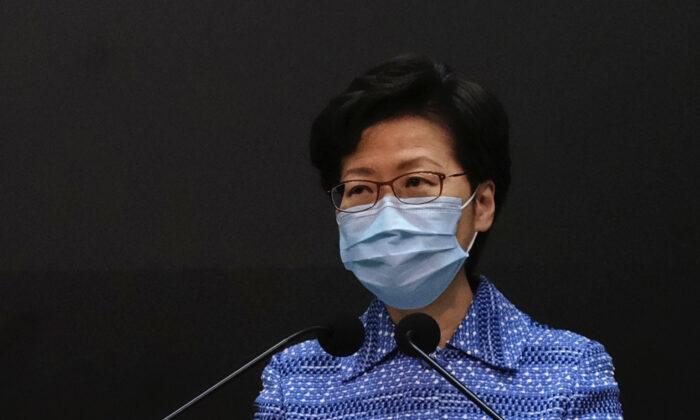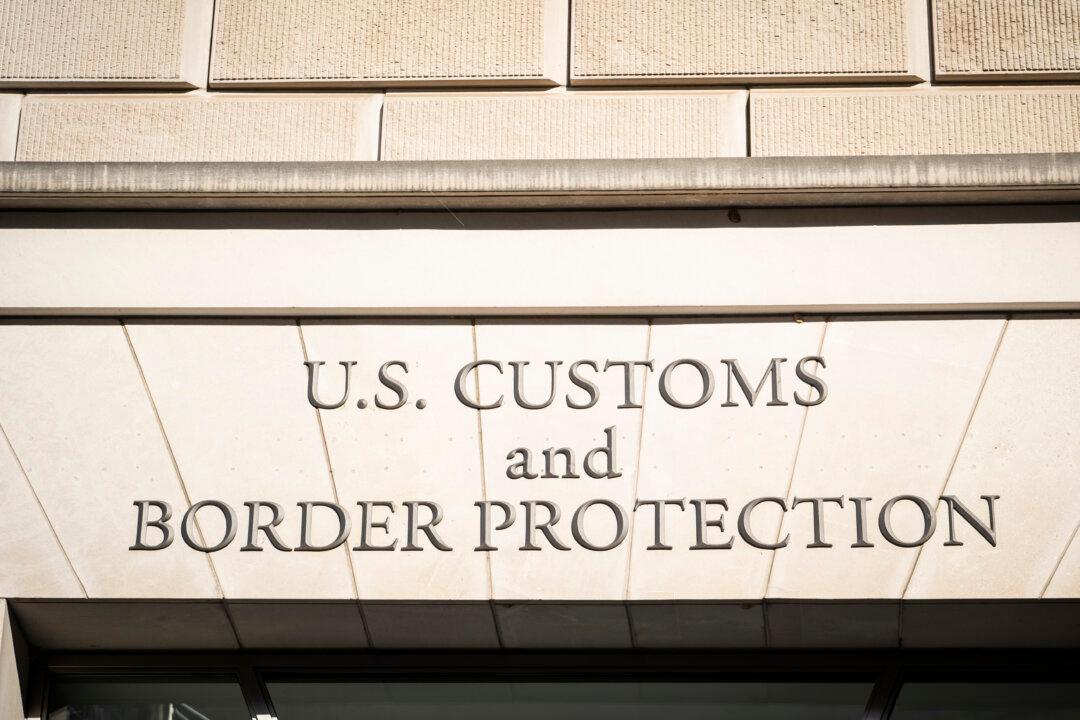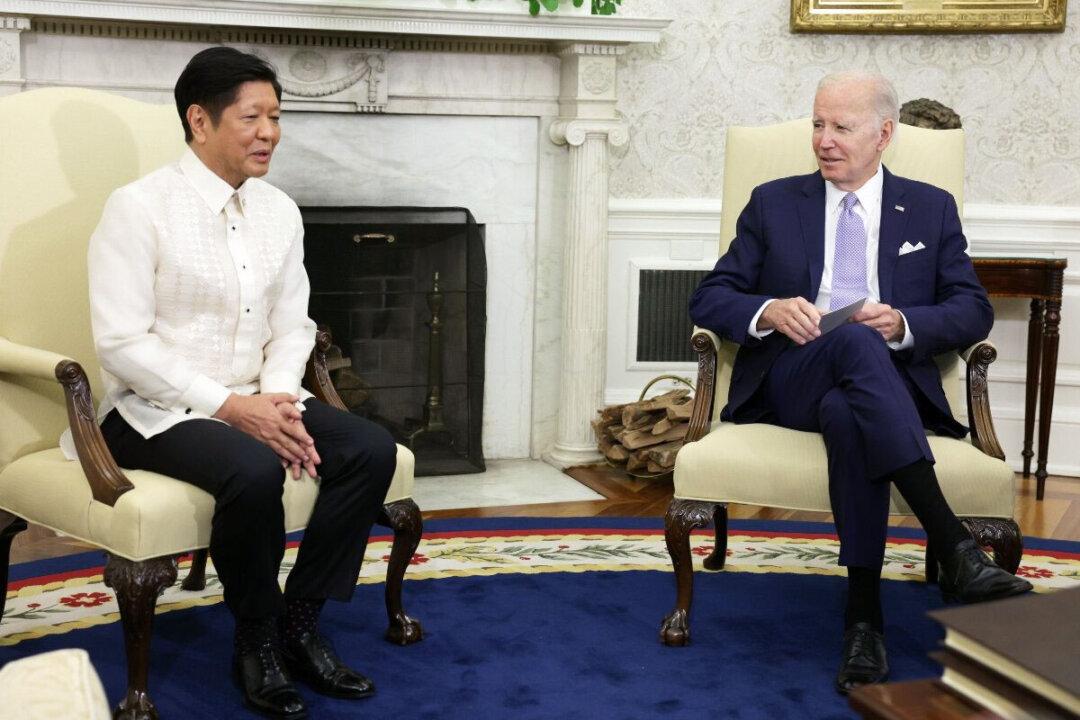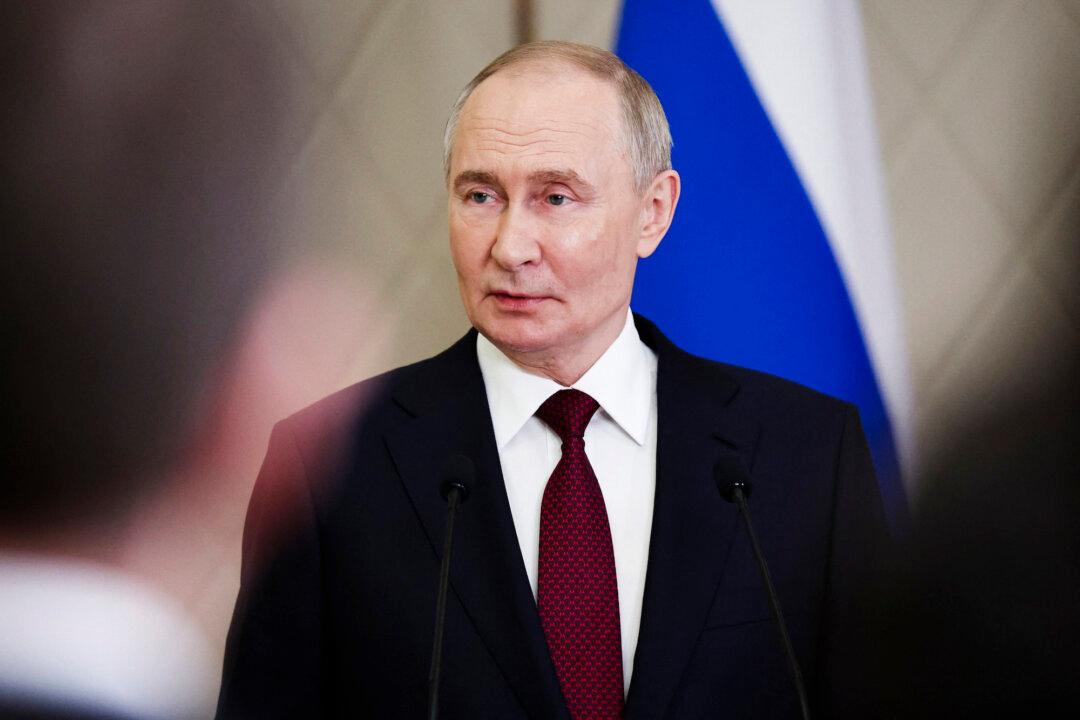Lam, speaking at her weekly press conference on May 26, was asked by a reporter whether she could guarantee that Hongkongers could still protest on the streets, and voice their opposition to her policies and the Chinese Communist Party (CCP), if the proposed law from Beijing is enacted.
She didn’t respond directly to the question. Instead, she asked people not to worry, saying that “legal” protests would not be in the crosshairs of the national security law.
“Protest itself is an expression of freedoms and rights and opinions if it is done in a legal way. You must observe the law,” Lam said. “It has to depend on the circumstances and whether it has been done in a legal fashion.”
Lam explained that from the government’s perspective, she has to take into account the “safety and security” of the 1.4 billion people of China.
“As a result, we take the legislation proposed by the central government at the national level for granted. If there is objection, we would deal with illegal opposition acts in accordance with law and will not back down,” Lam said.
Lam also defended the CCP’s security law, arguing that it was intended to target “a small number of criminals.”
Her words echoed recent comments made by China’s state-run media, which stated that the security law only targeted “a small group of people that seriously endanger national security,” or a small group of “secessionists” in Hong Kong.
Since June last year, China’s state-run media have repeatedly portrayed Hong Kong protesters as a “small number of people,” among them “rioters” and “radicals,” saying the “majority” of Hongkongers support Beijing’s hopes that the protests will come to an end.
Currently, Hong Kong has a population of about 7.4 million people. In 2003, half a million took to the streets in protest against Article 23—an anti-subversion bill pushed by Beijing. Many feared the the proposal would threaten the city’s autonomy and their basic freedoms. Article 23 was eventually shelved.
Then in June last year, protests against the extradition bill drew millions of Hongkongers onto the streets, which eventually led to the bill being scrapped.
International Outcry
Lam also accused foreign politicians of making “wrongful statements” and having “double standards” with their comments about the legality of implementing the national security law.“Should Hong Kong Chief Executive Carrie Lam continue to follow the dictates of Chinese Communist Party General Secretary Xi Jinping and fail to protect the rights of the people of Hong Kong, she will have presided over the death of ‘One Country, Two Systems,” Smith stated.
“And the United States will be forced, by statute, to reassess the status of the Hong Kong Special Administrative Region and our relationship with it.”
It also expressed concerns about the likely scenario that Beijing’s security agencies would be granted justification over matters in Hong Kong.
It questioned whether these agencies would “have the power of enforcement and whether such powers as exercised will be limited by the laws currently in force in the HKSAR.”





